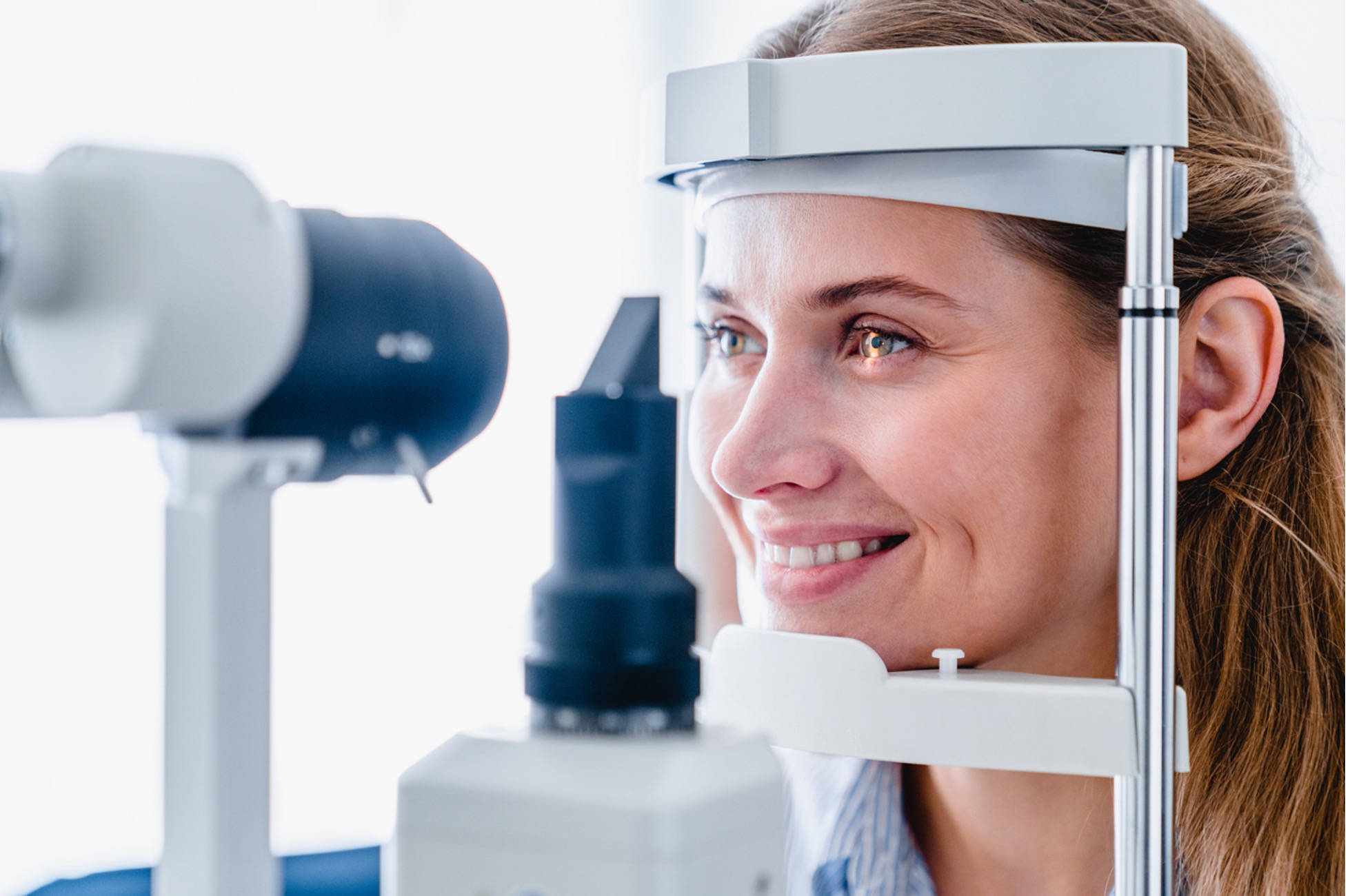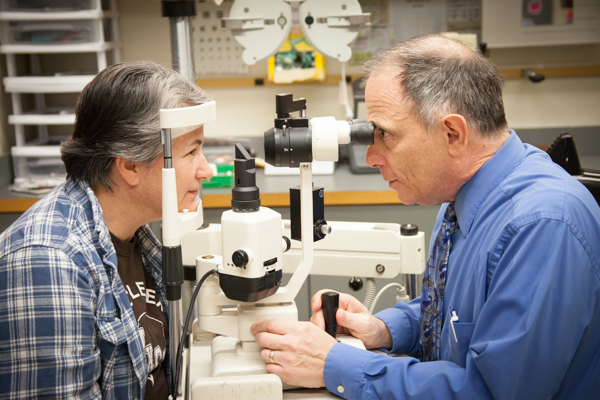Understanding the Different Eye Conditions Dealt With by Specialized Eye Treatment Professionals
In the world of eye care, specialized specialists play a critical role in detecting and dealing with a broad selection of eye problems. From common refractive errors that affect vision clearness to age-related problems that pose difficulties as we get older, the competence of these experts reaches managing vision-threatening diseases and complex corneal conditions. Moreover, the complexities of neurological eye conditions present one-of-a-kind difficulties that require specialized treatment. As we start this expedition of the different eye problems attended to by specialized eye care experts, it comes to be apparent that the detailed internet of eye health holds a myriad of interesting understandings waiting to be revealed.
Typical Refractive Errors
Refractive errors are usual aesthetic conditions created by a blemish in the eye's capacity to correctly focus light, resulting in obscured vision. Astigmatism is identified by an irregularly shaped cornea, resulting in distorted or obscured vision at all ranges. Presbyopia is an age-related problem where the lens sheds its adaptability, making it difficult to focus on close things.
These refractive mistakes can be dealt with through various methods, consisting of eyeglasses, call lenses, or refractive surgical treatment. Eye care experts play a crucial function in identifying and managing refractive errors to help individuals accomplish more clear vision and improve their lifestyle.
Age-Related Eye Conditions
As people age, their eyes may be vulnerable to a variety of problems beyond refractive errors that can impact their vision and total eye health. Age-related eye conditions prevail and can considerably impact the lifestyle for older adults. One of the most prevalent age-related eye problems is age-related macular deterioration (AMD), a condition that triggers central vision loss and can make activities like analysis and driving difficult. refractive surgeries in al. Cataracts, one more common problem amongst older individuals, trigger clouding of the eye's all-natural lens, resulting in blurred vision. Glaucoma, identified by damages to the optic nerve, is also a lot more common with age and can cause field of vision loss or blindness if left without treatment. Additionally, presbyopia, a problem where the eye's lens sheds versatility, is an all-natural part of aging and brings about difficulty concentrating on close objects. Normal eye examinations with specialized eye care specialists are crucial for very early detection and management of these age-related eye problems to maintain vision and keep eye health as people get older.
Vision-Threatening Illness
Vision-threatening diseases encompass a variety of serious ocular problems that have the potential to considerably influence an individual's sight and general visual function. These illness position a danger of permanent vision loss if not without delay identified and dealt with by specialized eye treatment experts. Some common vision-threatening illness include glaucoma, diabetic person retinopathy, age-related macular degeneration (AMD), and retinal detachment.
Glaucoma is a team of eye problems that harm the optic nerve, typically as a result of high intraocular pressure, bring about peripheral vision loss and potential loss of sight if left unattended. Diabetic retinopathy is a difficulty of diabetes mellitus that look at this now affects capillary in the retina, causing vision problems or loss of sight. AMD is a modern condition influencing the macula, causing main vision loss. Retinal detachment occurs when the retina separates from its underlying tissue, causing unexpected vision loss that requires prompt medical attention (refractive surgeries in al).
Very early detection, regular eye tests, and timely intervention are vital in managing vision-threatening conditions to preserve sight and maintain lifestyle. Specialized eye treatment specialists play a vital role in diagnosing, dealing with, and handling these conditions to avoid permanent vision loss.

Corneal Disorders
Corneal disorders incorporate a range of problems that impact the transparent front part of the eye, known as the cornea. These conditions can result in pain, aesthetic disturbances, and in severe instances, vision loss. One usual corneal disorder is keratoconus, where the cornea thins and protrudes external right into a cone form, causing astigmatism and obscured vision. Corneal dystrophies, such as Fuchs' dystrophy, cause progressive vision loss because of uncommon down payments in the cornea. Corneal abrasions, typically triggered by injury or foreign objects, can lead to discomfort, redness, and sensitivity to light. Furthermore, infections like keratitis can irritate the cornea, potentially causing scarring and vision problems if not quickly dealt with. Therapy for corneal conditions differs relying on the certain condition yet might include medicines, call click for source lenses, or in serious instances, corneal transplants. Routine eye examinations are essential for early discovery and monitoring of corneal conditions to protect vision and eye wellness.
Neurological Eye Problems
Neurological eye problems involve conditions that affect the connection in between the eyes and the brain, affecting aesthetic processing and total eye function. These conditions can materialize in different methods, affecting vision, eye activities, and also the sychronisation in between the eyes. One usual neurological eye condition is optic neuritis, defined by inflammation of the optic nerve causing vision loss, color desaturation, and discomfort with eye movement.
An additional considerable problem is nystagmus, where the eyes make repetitive, unchecked movements, influencing visual acuity and deepness perception. In addition, conditions like amblyopia, usually referred to as "careless eye," result from unusual visual advancement in early childhood, bring about minimized vision in one eye.
Neurological eye problems need customized treatment from specialists like neuro-ophthalmologists that have expertise in more information both neurology and ophthalmology. Medical diagnosis often entails a comprehensive eye assessment, imaging research studies, and cooperation with neurologists to deal with the underlying neurological concerns impacting the aesthetic system. Treatment techniques can consist of drug, vision treatment, or in severe cases, medical interventions to manage these complicated problems efficiently.

Final Thought
Finally, specialized eye care professionals deal with a vast array of eye conditions, consisting of typical refractive errors, age-related eye conditions, vision-threatening diseases, corneal conditions, and neurological eye problems - refractive surgeries in al. By comprehending these different problems and seeking ideal therapy from eye treatment experts, individuals can preserve ideal eye health and wellness and vision. It is important to prioritize normal eye evaluations and adhere to recommended treatment strategies to maintain and shield one's vision for the future